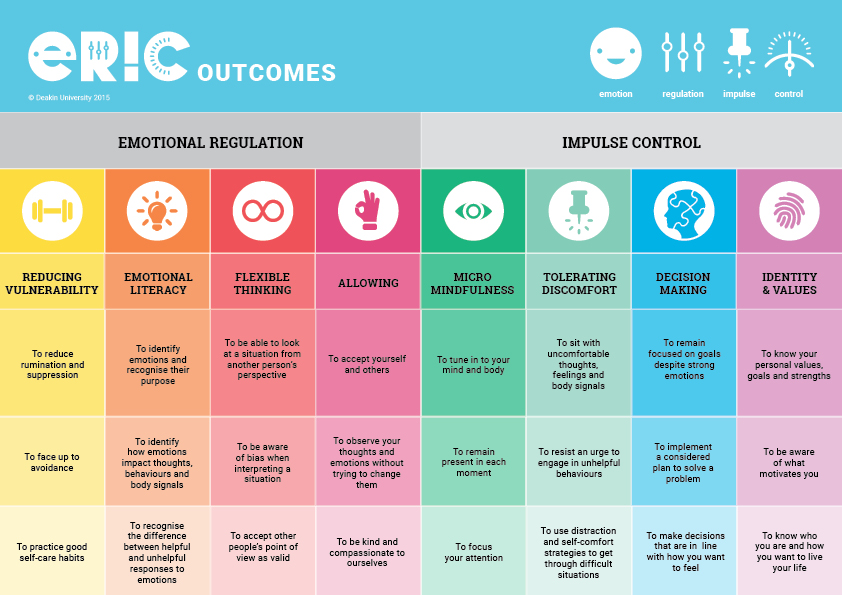DOMAINS
ERIC builds skills across eight domains. Each domain relates to important processes or strategies associated with emotion regulation and impulse control. The domains are ‘stand alone’ modules that can be flexibly delivered to young people, depending on their individual emotion regulation needs.
The Reducing Vulnerability domain targets the use of unhelpful emotion regulation strategies.

The Reducing Vulnerability domain targets the use of maladaptive, or unhelpful, emotion regulation strategies, including rumination, suppression and avoidance. This domain is informed by the empirical literature which has indicated that the presence of maladaptive emotion regulation strategies has a more harmful effect than the relative absence of adaptive emotion regulation strategies.
The Emotional Literacy domain targets emotional clarity, which is the ability to identify and name emotions, and tell the difference between emotions as they occur.

ERIC’s Emotional Literacy domain targets emotional clarity, which is defined as the ability to accurately identify, name, and discriminate between emotions as they occur. The ability to identify and understand emotions is an important first step in developing helpful emotion regulation skills.
The Flexible Thinking domain teaches strategies to develop cognitive reappraisal skills. Learning how to look at situations from another persons’ perspective can help turn down the intensity of emotions.

The Flexible Thinking domain teaches strategies to develop cognitive reappraisal skills based on the assumption that changing how we interpret a situation can change how we feel. This adaptive emotion regulation strategy involves generating helpful or positive interpretations or perspectives on a stressful situation to reduce distress.
The Allowing domain emphasises the important role that taking a non-judgemental and accepting stance has in emotion regulation and wellbeing.
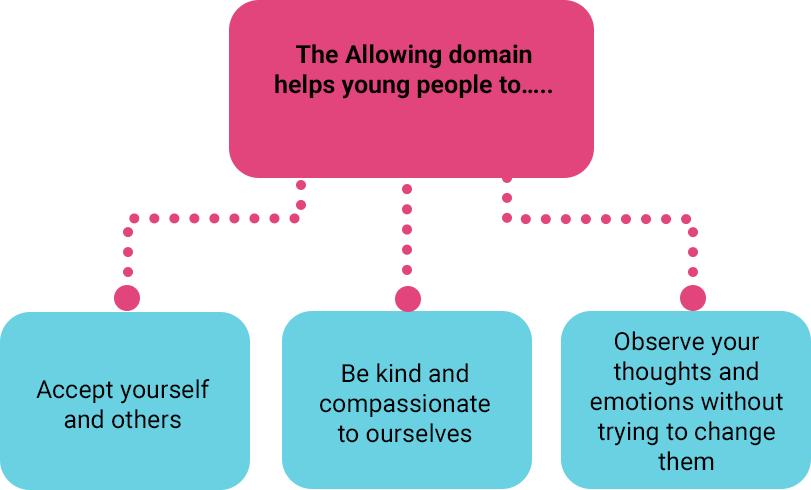
ERIC’s Allowing domain advocates acceptance of difficult emotions and draws on mindfulness based therapies. Acceptance is an adaptive emotion regulation strategy involving: being present in the moment; accepting what is experienced; allowing the experience to be as it is; and, observing it with curiosity and without judgement. ERIC promotes accepting uncomfortable thoughts, feelings and behaviours rather than resisting and avoiding them.
The Micro Mindfulness domain builds habits to remain present in each moment in order to step out of ‘automatic pilot’ and apply helpful emotion regulation strategies.
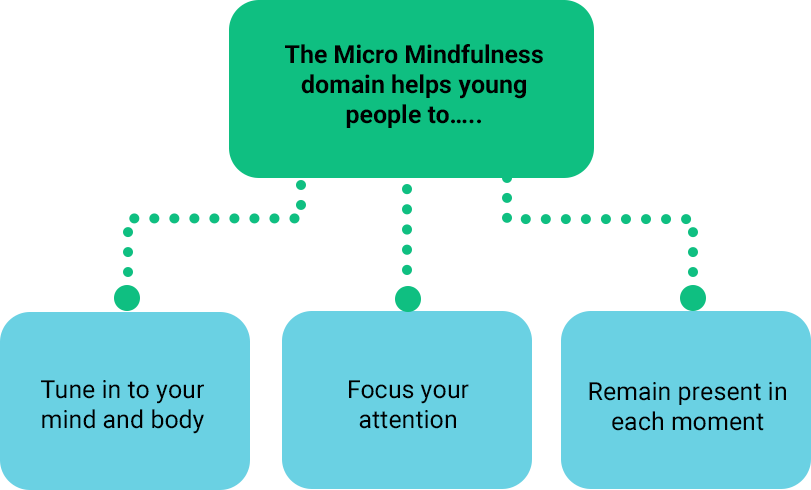
Micro Mindfulness highlights the role of mindfulness in regulating emotions as it involves being open to the here-and-now experience and the non-judgemental acceptance of emotions. Micro Mindfulness involves learning how to: be more present by stepping out of ‘automatic pilot’; control attention; and, tune in to what’s going on in your mind, body and the outside world.
The Tolerating Discomfort domain encourages the development of strategies to help get through a difficult situation without making it worse.

ERIC’s Tolerating Discomfort domain highlights the broad principle of non-avoidance as an effective emotion regulation strategy. Facing up to a difficult situation and planning how to get through it without making it worse is a helpful strategy.
The Decision Making domain draws together the concepts of values-based decision making and problem solving to reduce impulsive or avoidant behaviours.
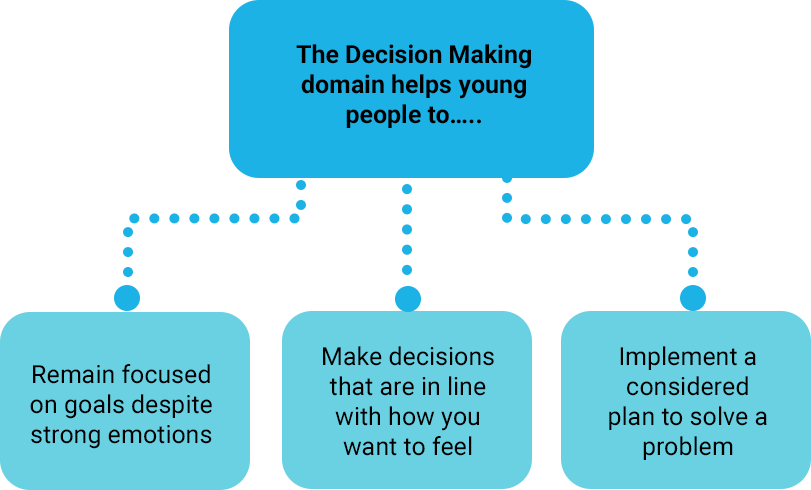
The Decision Making domain combines the concepts of values-based decision making and problem solving. This domain emphasises minimising impulsive or avoidant ways of responding to a stressful situation. Problem solving responses are planned and mindful attempts to change a stressful situation to minimise its negative consequences.
The Identity and Values domain focuses on identifying and connecting with personal values and identifying strengths and increasing motivation for positive change.
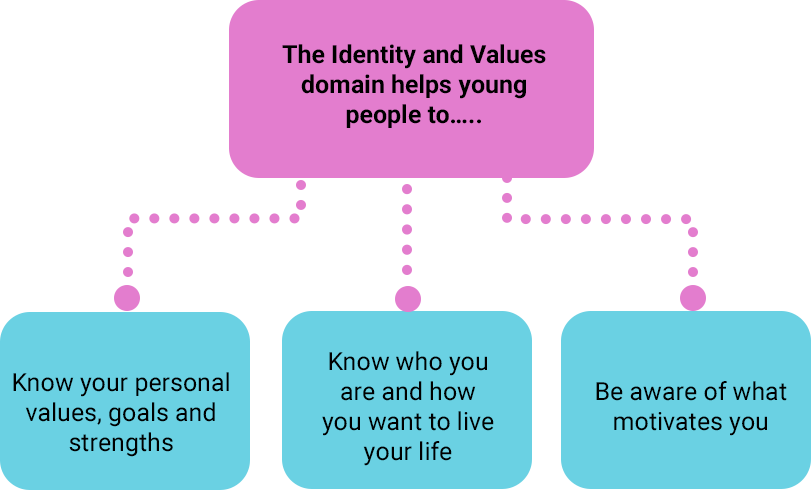
ERIC’s Identity and Values domain focuses on motivation and the identification and awareness of personal strengths and values. Connecting skill development and decision making with identified personal values is an effective way of increasing motivation for change and reducing impulsive responding.
ERIC has 24 emotion regulation outcomes for young people that represent a broad repertoire of healthy emotion regulation skills. Each of the eight domains has three emotion regulation outcomes. The 24 ERIC outcomes can be considered therapeutic intentions, targets or emotion regulation goals. The outcomes help you to identify which skills to target and what emotion regulation strategies you are intentionally helping to cultivate.
